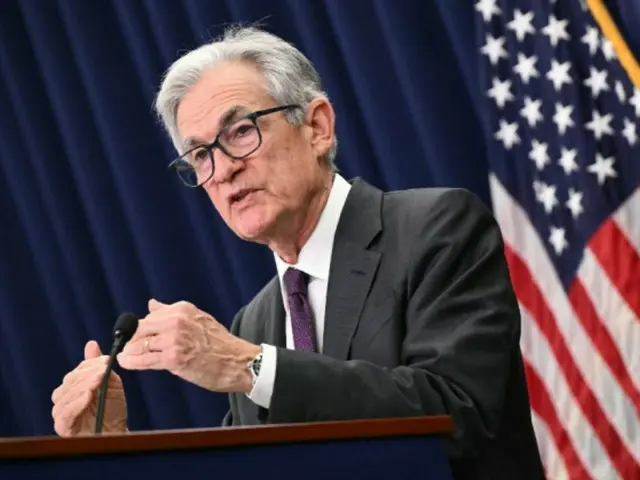"We have received a clear mandate from Congress to stabilize prices and strengthen the labor market," Chairman Powell said at a press conference following the Federal Open Market Committee (FOMC) meeting held that day.
He stated that "the central bank does not consider the financial needs of the federal government outside of its mandate." He also stated that "among the developed countries, there are no central banks that determine policy interest rates by taking into account the government's financial burden."
"Such actions by the Fed would be undesirable because they would undermine its credibility," he said. The comments came after President Donald Trump relentlessly urged Chairman Powell to lower interest rates.
Trump has consistently called for interest rate cuts since before he took office, and has recently stepped up pressure on Chairman Powell, citing the burden of interest payments on the national debt.
The chairman's remarks are seen as an attempt to emphasize the Fed's independence in the face of such political pressure. Many economists also believe that central banks should raise interest rates to lower government borrowing costs.
The Fed has pointed out that if it manipulates the interest rate, it will lose its ability to control prices and will have difficulty in independently managing policy. On this day, the Fed decided to keep the policy interest rate at the current range of 4.25-4.50%.
Two of the board members who had previously been strong advocates of lowering interest rates, Michelle Bowman and Christopher Waller, voted against the move, while Adriana Kugler abstained from the vote.
This was the first time since 1993 that a single board member had voted against an interest rate decision, but the impact was limited as this was expected in the market.
The Federal Reserve recently began to precisely analyze the impact of government economic policies, such as tariff changes, on the real economy.
The Fed is currently analyzing the situation and is expected to consider whether to lower interest rates in September. Meanwhile, the Fed has been under constant pressure from President Trump to lower interest rates. Trump has said that the Fed's interest rates are too high and that the government is
They argue that interest payments on the government's national debt are skyrocketing, and are calling for interest rates to be lowered to around 1%. In fact, interest payments for the U.S. government reached $1.1 trillion last year, up from $2.2 trillion in the pre-COVID period.
However, if the Fed were to suddenly lower its policy rate, prices, which are already under pressure from tariff hikes and other factors, would rise further, leading to higher interest rates on government bonds.
Some analysts say that this will have the opposite effect of raising government borrowing costs. In the past, the Fed has maintained interest rates intentionally low to make it easier for the government to finance deficit spending.
It has faced criticism, which it has consistently denied.
2025/07/31 09:27 KST
Copyrights(C) Edaily wowkorea.jp 88

